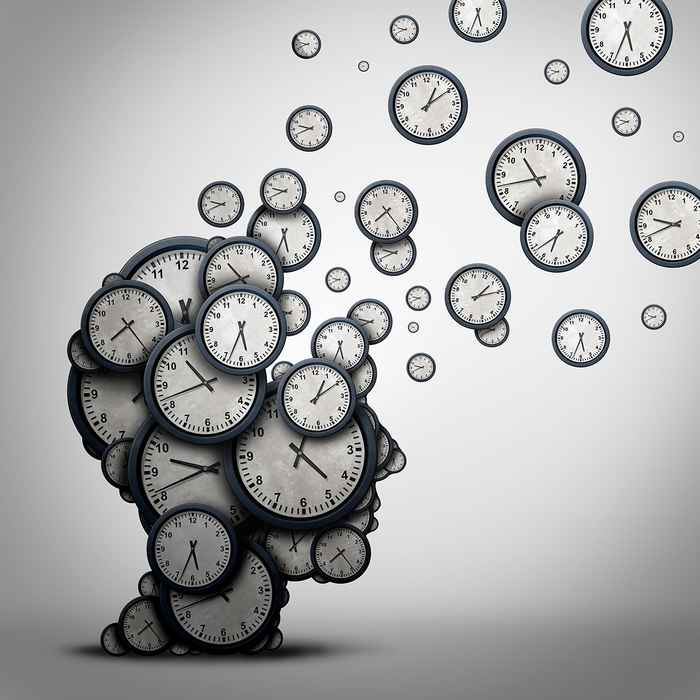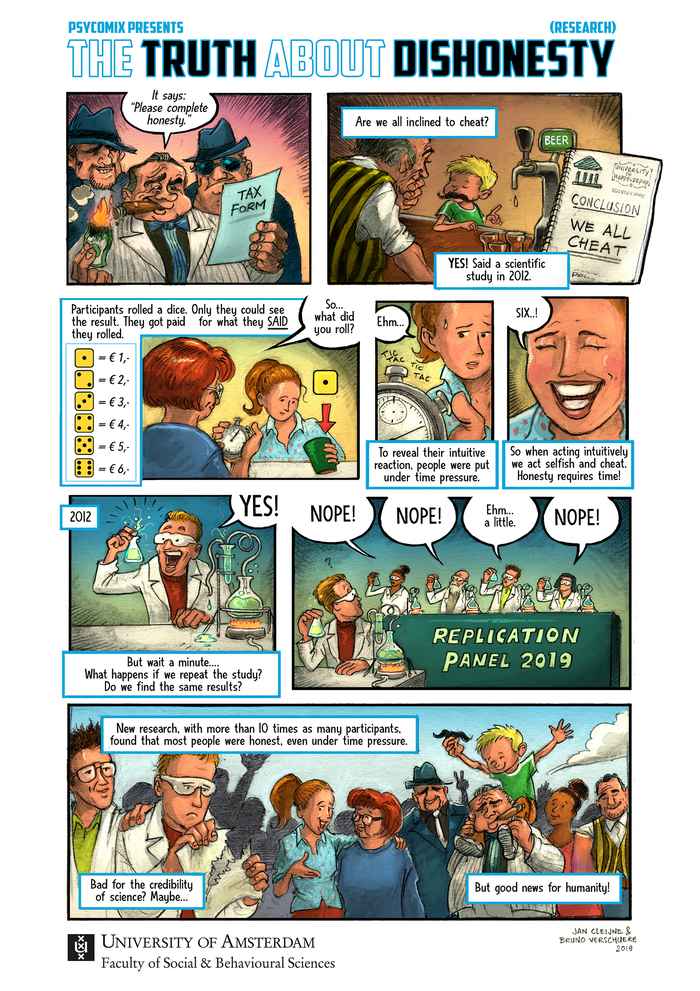Most people remain decent even when under pressure
24 March 2020

Decision-making plays an important role in stress and pressure: how will one react in a particular situation? Decision-making is an interaction between rapid and automatic thinking on the one hand and slow and reflective thinking on the other. Researchers have long been examining whether rapid and automatic thinking leads chiefly to greed, and whether we need time and reflection to be able to behave fairly. And in times of crisis, time for reflection is in short supply.
Earlier studies indicated that people under pressure mostly focus on their own advantage and will even tell lies to this end. However, a replication study about pressure and greed conducted by UvA psychologists Ine Van der Cruyssen and Bruno Verschuere, together with their colleagues Jonathan D’hondt (Ghent University) and Ewout Meijer (Maastricht University), has now come to a different, and much more positive, conclusion. The results have been published in Psychological Science.
The original experiment from 2012: we are selfish when we act based on instinct
The original experiment, now repeated by Van der Cruyssen and colleagues, was a famous dice experiment dating from 2012. This experiment tested whether we start lying under pressure if this will benefit us. Participants in the experiment had to throw a die and then report the score, which only they themselves could see. The higher the score, the more money they could win. At the same time, the participants were put under time pressure using a stopwatch that ran faster and faster.
The experiment reported that participants, particularly when under time pressure, systematically stated higher scores than one would expect on the basis of chance. The scientists conducting the experiment thus concluded that we are selfish and resort to deceit as soon as we are forced to act based on instinct. In order to be honest, we need time to think and we cannot be put under pressure to take a decision.
The replication study from 2019: people are unselfish even when under pressure
In 2019, Van der Cruyssen, Verschuere and colleagues repeated this dice experiment many times. ‘One limitation of those earlier studies’, says Verschuere, ‘is that they offered insufficient statistical certainty, partly due to the small sample size. Consequently, the confidence in these old studies has wavered.’
Van der Cruyssen and colleagues have arrived at a very different result than the experiment from 2012. In their replication study, it turns out that most people are actually honest, even when placed under pressure.

‘Most people are decent’
‘The original study may well have overestimated the true effect of time pressure on deceit and the generalisability of the effect outside the experiment’, explains Verschuere. The replication study carried out by Van der Cruyssen, Verschuere and colleagues refutes the proposition that people instinctively start cheating and instead underlines a preference for honest behaviour.‘The study is very much in line with Rutger Bregman’s, Dutch historian and author, sentiment that “most people are decent”’, concludes Verschuere.
About the article
https://doi.org/10.1177/0956797620903716.
The article is open access and thus freely accessible to all!
Any questions about the study?
Please contact: Ine Van der Cruyssen